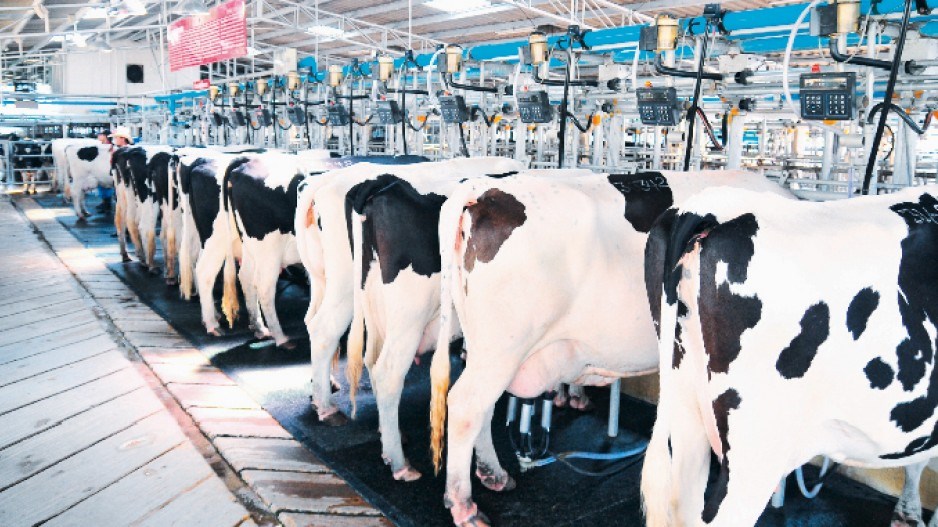While still flying largely under the radar in B.C., an emerging Asia-Pacific trade deal is making B.C.’s supply-managed dairy industry nervous.
Canada is seeking membership in the Trans-Pacific Partnership (TPP) – trade negotiations involving Brunei, New Zealand, Singapore, Chile, Australia, Malaysia, Peru, Vietnam and the United States.
Canada was invited to join the talks in June, along with Mexico; both countries are waiting for their status to be approved.
However, while most of B.C. industry is welcoming tighter ties with Asia, local dairy farmers are worried that a free-trade deal might signal the demise of supply management protections of licensing, quotas and tariffs.
“The biggest fear would be that supply management would be dissolved,” said David Eto, CEO and executive director of the BC Dairy Association(BCDA), which represents 522 dairy farmers across the province.
“Supply management is absolutely critical to the survival of the industry, not just across B.C. but [also across] Canada.”
Eto said the current system works well and ending supply management would threaten B.C. dairy farmer jobs. He added that the BCDA is closely watching how the talks progress.
But if dairy farmers are worried about a TPP deal, most B.C. business experts support the talks.
John Winter, president and CEO of the BC Chamber of Commerce, said any deal that improves trade relationships benefits the province – particularly when it’s with B.C.’s trading partners.
Winter said that, considering B.C.’s annual Pacific Rim exports are about $15 billion, the dairy industry concerns are not significant in the bigger picture.
“If we can grow that by 10%, the net gain for British Columbia will be huge.”
He added that supply management schemes are quickly becoming things of the past.
“I think what we’re seeing happening in Bellingham [with British Columbians buying dairy products] at the Costco is probably the best example of why they don’t work: the fact that our milk is overpriced and it’s a monopoly, that’s probably not in the best interests of consumers.”
Jock Finlayson said the deal is positive for B.C., given its Asian orientation, and could benefit exporters and service providers doing business in Asia-Pacific countries.
But the executive vice-president and chief policy officer of the Business Council of British Columbia added that the deal’s real clout won’t be known until the list of participating countries is clear.
“If you get a Japan eventually and a Korea signing on, then you’re dealing with something that’s going to have a much larger impact than just with the countries right now.”
Finlayson added that besides any gains B.C. might make under the deal, there’s a “defensive” rationale for Canada – and through it, B.C. – to join the TPP: the U.S. is planning to.
“We would be at a significant disadvantage in competing for investment relative to the United States if the U.S. had preferred access to all of these other markets and we didn’t.”
But Keith Head, a professor at Sauder School of Business, doubted that the deal would prove a significant gain for B.C., given that Canada already has free-trade agreements with Chile, the U.S., Mexico and Peru, and preferential tariffs with Australia and New Zealand.
“Now you’re talking about Malaysia and Singapore. Well, they’re pretty small economies that are pretty far away that we don’t do that much trade with. It’s a little bit hard to see this as having a huge impact on any sectors in Canada.”
Head added that impact would change radically if the deal attracted major players like China, Japan or, to a lesser extent, Korea. But while Japan has expressed interest in the deal, Head said it’s doubtful the nation would join.
“Japan hasn’t really gotten into the free-trade agreement stuff at all. They have practically no free-trade agreements, and they’re as worried, if not more so, about protecting their rice farmers as we are about protecting our dairy farmers.”
Without the major Asian players at the table, how significant is the TPP for B.C. compared with NAFTA and a potential trade deal with Europe?
Not very, according to Head. “Ant. Elephant,” he quipped. •




